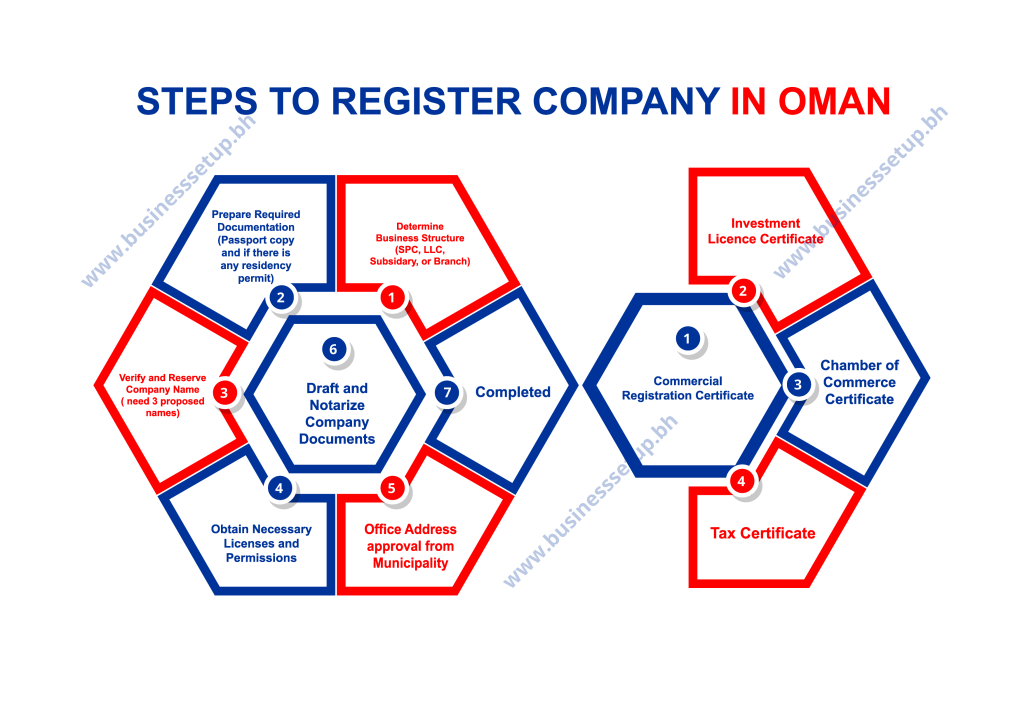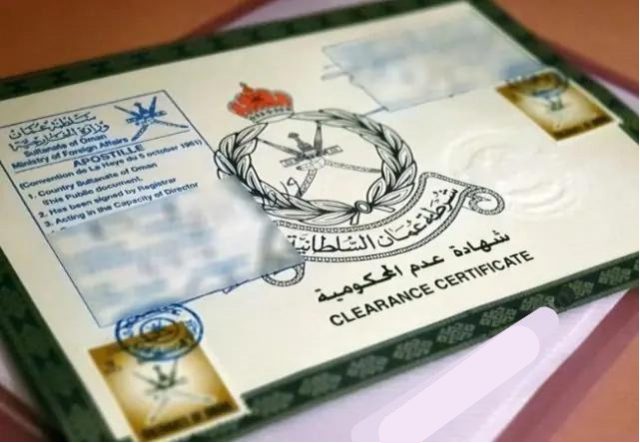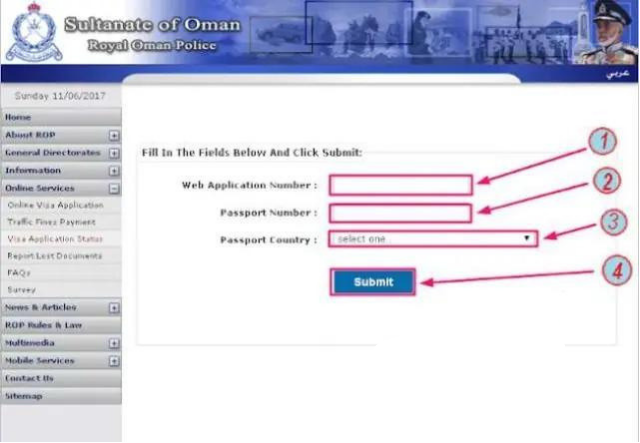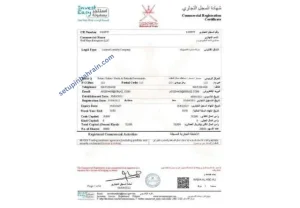- Sun – Thur : 08.00 – 17.00
- +973 3366 9381
- [email protected]
Register Company in Oman
When aiming to register a company in Oman, 7 vital steps and considerations come into play.
7 Key Steps to Register Company in Oman:
Step #1: Choose Business Structure
Select a Limited Liability Company (LLC) for most flexibility and 100% foreign ownership in many sectors (consult legal counsel for specifics on exemptions and limitations).
Step #2: Secure Local Support
Partner with a local sponsor for certain activities regulated by the Ministry of Commerce and Industry (MoCI), or consider a business setup company to ensure a smooth process.
Step #3: Draft Memorandum of Association (MOA)
Outline your company’s objectives, share capital, and governance structure. Seek legal assistance to ensure compliance with MoCI regulations.
Step #4: Obtain Initial Approvals
Apply for company registration with the Ministry of Commerce and Industry (MoCI). You may need approvals from other government entities, depending on your business activity.
Step #5: Deposit Share Capital
Deposit the minimum required share capital in a local bank account. The amount varies depending on the company structure and foreign ownership percentage.
Step #6: Register Your Company
Submit the completed application form along with necessary documents, including the MOA and share capital deposit proof, to the Commercial Register (CR) Department of the MoCI.
Step #7: Obtain Commercial Registration (CR)
Upon successful registration, you will receive the Commercial Registration (CR), which is the official license authorizing your company to operate in Oman.

Step 1: Determine Business Structure (SPC, LLC, Subsidiary, or Branch)
Introduced relatively recently in 2019, the Single Person Company (SPC) is a specialized business entity designed explicitly for single ownership. It offers a distinct advantage by providing limited liability to the sole owner. An SPC is exclusively owned and managed by a single individual who assumes liability only up to the extent of their investment. This structure streamlines decision-making processes and offers the owner the benefits of a separate legal identity, shielding personal assets from business liabilities. However, there are certain restrictions imposed on the types of activities an SPC can engage in, and compliance with annual audit requirements is mandatory.
The Limited Liability Company (LLC) stands out as one of the most commonly preferred structures by foreign investors in Oman. It necessitates a minimum of two shareholders, allowing for up to 30% foreign ownership. An essential requirement of an LLC is the inclusion of at least one local partner. While it provides the advantages of a separate legal entity and limited liability for its partners, an LLC demands careful consideration due to the necessity of having a local partner and the potential complexity involved in negotiating and solidifying partnership agreements.
A Subsidiary operates as a distinct legal entity formed by a parent company, often a foreign entity, seeking to establish a presence in Oman. Despite its independence, a subsidiary remains under the control of the parent company. This structure enables the parent company to retain control while benefitting from liability separation and potential tax advantages. However, operating as a subsidiary demands compliance with both local Omani regulations and the policies and procedures of the parent company, potentially leading to complexities in governance and decision-making processes.
A Branch Office serves as an extension of a foreign company operating within Oman. Typically restricted to conducting activities outlined in the parent company’s license, a branch office functions under the direct control of the foreign parent entity. Unlike other structures, setting up a branch office does not necessitate a minimum capital requirement. However, its autonomy is limited, and liabilities extend to the parent company. Furthermore, stringent reporting requirements are imposed, mandating detailed disclosures and compliance measures.
Step 2: Prepare Required Documentation (Passport copy and if there is any residency permit)
When establishing a company in Oman, preparing the necessary documentation is a crucial step in the registration process. Here are the primary documents required:
1. Passport Copies:
- Company Shareholders and Directors: Passport copies of all shareholders and directors involved in the company are mandatory.
- Local Partner: If forming an LLC, include the passport copy of the local partner who owns at least 30% of the company. This is a key requirement for compliance.
- Foreign Investors: For foreign investors, passport copies serve as proof of identity and are crucial for company registration.
2. Residency Permit (if applicable):
- Foreign Residents: If any of the shareholders or directors have a residency permit in Oman, providing a copy may be necessary. This could be an investor or a director residing in Oman for business purposes.
- Visa or Work Permit: Copies of valid visas or work permits may also be required for non-resident individuals involved in the company.
Document Notarization:
- Notarized Copies: Often, the passport copies need to be notarized or certified by a Notary Public to authenticate their legitimacy for official purposes.
- Legal Translation: If the passports or permits are not in Arabic, certified translations may also be necessary.

Step 3: Verify and Reserve Company Name (need 3 proposed names)
When establishing a company in Oman, securing a company name is a critical initial step. Here’s a detailed process for verifying and reserving a company name:
1. Verify Name Availability:
- Check with the Ministry: Verify the availability of the desired company name(s) by conducting a search through the Ministry of Commerce and Industry’s database.
- Name Guidelines: Ensure the proposed names comply with Omani naming conventions and regulations, avoiding any restricted or prohibited terms. Names should be unique, not similar to existing companies, and not infringe upon trademarks.
2. Propose Three Names:
- Select Multiple Options: It’s prudent to propose at least three distinct names in case the primary choice is unavailable or doesn’t meet the criteria.
- Variation and Originality: Include diverse options, varying in terms or structure to increase the likelihood of securing an available name.
3. Submit Name Reservation Application:
- Formal Application: Prepare and submit an application to the Ministry of Commerce and Industry to reserve the chosen name(s).
- Required Information: Include details such as the proposed names in order of preference, along with the intended type of business structure (LLC, SPC, etc.), and relevant shareholder information.
4. Approval and Reservation:
- Review Process: The Ministry will review the proposed names for compliance with regulations and availability.
- Reservation Period: If approved, the Ministry will reserve the name for a specific period, typically 60 days, during which the company registration process must be initiated using the reserved name.
5. Considerations for Name Selection:
- Distinctiveness: Opt for a unique and distinctive name that reflects the company’s nature or vision.
- Relevance: Choose a name relevant to the business domain while being mindful of potential expansion or diversification.
- Legal Compliance: Ensure the proposed name aligns with Omani naming laws and regulations, avoiding sensitive or restricted terms.
Step 4: Necessary Permissions & Licenses
In Oman, obtaining necessary permissions, including those from the Royal Oman Police, is an integral step when establishing a company. Here’s an overview of the permissions often required:
1. Royal Oman Police (ROP) Clearances:
- Security Clearances: Depending on the nature of the business, certain activities may require security clearances from the Royal Oman Police.
- Importance: These clearances are crucial, especially for businesses dealing with sensitive industries, security-related services, or strategic sectors.
2. Process of Obtaining ROP Permissions:
- Application Submission: Submit the necessary applications to the Royal Oman Police detailing the nature of the business, intended activities, and the requirement for security clearances.
- Documentation: Include all relevant documentation requested by the ROP, which may vary based on the industry and business activities.
- Compliance Verification: The ROP verifies the details provided in the application and conducts background checks to ensure compliance with security protocols and regulations.
3. Specific Industry Clearances:
- Sensitive Sectors: Certain industries such as security services, defense, telecommunications, and others with strategic importance might require specific clearances or permits from the ROP.
- Legal Compliance: Obtaining these clearances ensures adherence to legal requirements and regulatory frameworks governing specific sectors.

Step 5: Office Address approval from Municipality
Acquiring office address approval from the Municipality in Oman is a crucial step in setting up a business. Here’s an in-depth look at this process:
1. Significance of Office Address Approval:
- Legal Requirement: The Municipality’s approval for the office address is a legal prerequisite for establishing a business in Oman.
- Operational Necessity: It ensures that the proposed business location complies with zoning and municipal regulations.
2. Key Steps in Obtaining Office Address Approval:
- Selecting the Office Location: Choose a suitable location for the business office that aligns with the intended activities and adheres to municipal zoning regulations.
- Submission of Documentation: Prepare and submit documentation related to the office premises to the Municipality for approval. This typically includes:
- Lease Agreement: A duly signed and legalized lease agreement for the office space.
- No Objection Certificate (NOC): Some municipalities might require a No Objection Certificate from the property owner allowing commercial activities at the premises.
- Location Plan: A detailed plan or map showcasing the office’s exact location within the building or area.
3. Process of Approval from Municipality:
- Application Submission: Submit the required documents and the application form to the Municipality’s designated department for commercial permits or licensing.
- Review and Inspection: The Municipality assesses the documentation and might conduct site inspections to ensure compliance with regulations.
- Approval Issuance: Upon successful verification and compliance, the Municipality grants approval for the proposed office address.
4. Importance of Office Address Approval:
- Legal Compliance: Having the Municipality’s approval validates the business location and ensures compliance with local regulations.
- Business Continuity: Approval facilitates the smooth initiation of business operations without legal impediments.
Step 6: Draft and Notarize Company Documents
Drafting and notarizing company documents is a pivotal step in establishing a business in Oman. Here’s a comprehensive overview of this crucial process:
1. Significance of Company Documents:
- Legal Foundation: These documents form the legal framework and governance structure for the company’s operations in Oman.
- Binding Agreements: They outline roles, responsibilities, and operational procedures, ensuring clarity among stakeholders.
2. Key Company Documents to be Drafted and Notarized:
Memorandum of Association (MOA):
- Purpose: Defines the company’s scope, objectives, activities, and capital structure.
- Contents: Includes details about shareholders, company name, objectives, share capital, and governance structure.
Articles of Association (AOA):
- Purpose: Specifies internal rules, procedures, and regulations governing the company’s operations.
- Contents: Outlines shareholders’ rights, board meetings, decision-making processes, etc.
Shareholders’ Agreements (if applicable):
- Purpose: Details agreements among shareholders, outlining rights, responsibilities, and dispute resolution mechanisms.
- Contents: Covers matters like share transfer restrictions, dividend distribution, decision-making processes, etc.
3. Drafting Process:
- Legal Expertise: Engage legal professionals experienced in Omani corporate law to draft these documents accurately.
- Customization: Tailor documents to reflect the company’s specific requirements, ensuring clarity and alignment with local regulations.
4. Notarization Process:
- Notary Public: Documents must be notarized by a Notary Public to validate their authenticity and legality.
- Authentication: Notarization confirms that the documents are genuine and have been executed as per legal requirements.
5. Process of Drafting and Notarization:
- Document Preparation: Lawyers prepare drafts based on company specifics, ensuring they comply with Omani laws and regulations.
- Review and Approval: Stakeholders review and approve the drafts before notarization.
- Notary Public Visit: Documents are presented to a Notary Public for verification and notarization.
6. Importance of Proper Documentation:
- Legal Compliance: Notarized documents ensure legal compliance and authenticity, providing a solid foundation for the company’s operations.
- Clarity and Governance: Clearly outlined terms and regulations help prevent disputes and ensure effective governance within the company.
Step 7: Obtain Final CR | Process Complete

Obtaining the final Commercial Registration (CR) marks the completion of the company formation process in Oman. It’s the official recognition that allows the company to start operating legally within the country. With the CR in hand, the business can begin its commercial activities, sign contracts, and engage in transactions. It signifies compliance with regulations and sets the stage for the company’s journey in the Omani market.
Post Registration Important Steps:
After obtaining the Commercial Registration (CR) in Oman, there are several crucial post-registration steps to ensure the business can operate smoothly:
1. Obtaining the Chamber of Commerce Certificate:
Importance:
- Trade Recognition: The Chamber of Commerce Certificate acknowledges the company as a legitimate business entity.
- Networking Opportunities: Membership in the Chamber provides access to business networks, events, and potential collaborations.
Process:
- Application: Submit an application to the Chamber of Commerce along with required documents, including the CR, identification documents, and application fees.
- Review and Approval: The Chamber evaluates the application for compliance and, upon approval, issues the Chamber of Commerce Certificate.
2. Obtaining the Investment License:
Importance:
- Investment Legitimacy: The Investment License validates foreign investments and ensures compliance with investment regulations.
- Industry-Specific Permissions: Certain sectors require additional investment licenses for participation.
Process:
- Application Submission: File an application with the Ministry of Commerce and Industry or the Omani Center for Investment Promotion and Export Development (OCIPED).
- Documentation: Provide necessary documentation, such as CR, business plan, identification documents, and information on shareholding structure.
- Review and Approval: Authorities review the application and, upon compliance verification, grant the Investment License.
3. Opening Bank Accounts and Commencing Operations:
Bank Account Opening:
- Bank Selection: Choose a suitable bank based on services, accessibility, and compatibility with business needs.
- Documentation: Present CR, identification documents, Chamber of Commerce Certificate, and other required paperwork for opening corporate bank accounts.
Commencing Operations:
- Set Up Infrastructure: Establish necessary infrastructure, systems, and processes aligned with the business model and operational requirements.
- Hiring and Training: Recruit and train staff, if required, ensuring they are aligned with the company’s vision and goals.
- Initiate Business Activities: Begin marketing, sales, or production activities as per the business plan.
Compliance and Reporting:
- Tax Registration: Register for taxation, if applicable, ensuring compliance with tax laws.
- Annual Reporting: Stay updated on annual reporting requirements and comply with financial reporting obligations.
FAQs
Yes, Foreign Ownership is allowed upto 100% in some sectors.
Common business structures in Oman include Limited Liability Company (LLC), Joint Stock Company, and branch offices of foreign companies.
It takes only 10-15 Business Days to complete the company formation in Oman process.
The process involves selecting a business structure, reserving a trade name, preparing legal documents (Articles of Association), obtaining necessary approvals, and completing registration with the Ministry of Commerce and Industry.
Yes, it is possible to hire foreign employees, but the process involves obtaining work permits and ensuring compliance with labor regulations.
To register a company legally at a low cost in Oman, consider minimizing unnecessary expenses, utilizing online registration services provided by government authorities, selecting a business structure aligned with your budget, and seeking guidance from local business advisors for cost-effective compliance with legal requirements.
Starting an offshore business in Oman involves engaging with a registered agent, selecting a suitable jurisdiction, submitting the required documentation, obtaining necessary approvals from regulatory authorities, and adhering to the specific regulations and procedures set by the Oman government for offshore entities.
Yes, some sectors are now allowed upto 100% Ownership.
A business visa for Saudi Arabia is a type of visa that allows foreign nationals to enter the country for business-related purposes, such as meetings, conferences, or exploring potential business opportunities, and it is typically issued for a specific duration and requires sponsorship from a Saudi-based entity.
To obtain a working visa in Bahrain or Saudi Arabia, individuals need a job offer from a sponsoring employer, who will initiate the visa application process by submitting the necessary documents to the respective country’s immigration authorities, with specific requirements and procedures varying, and it is advisable to consult with the relevant embassy or consulate for the most accurate and up-to-date information.
To use the Shopify payment gateway in Saudi Arabia, integrate a supported payment provider compatible with the region, such as 2Checkout or PayTabs, through your Shopify admin panel, and configure the payment settings to enable seamless transactions for your online store.
Map & Location
Office No. 505 Building No. 1532 Road No. 3519 Block No 235 Alkhuwair Muscat, Oman


